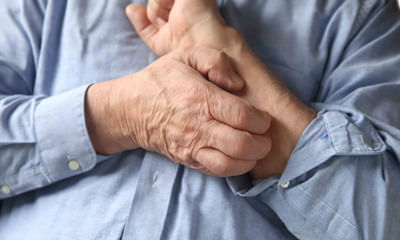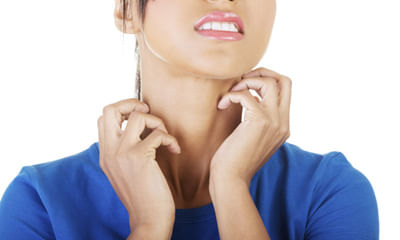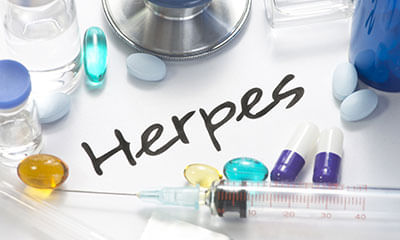Shingles Symptoms And Treatment
My sister's son suffering from skin problem like redness, burning, peel off from his birth till now (4 years old) we giv ...
Ask Free Question
Healthy and glowing skin often mirrors the health of the whole body. Homeopathy is very effective in treating the painful symptoms of skin conditions such as acne, eczema, sores, hives, psoriasis, rashes, shingles and warts. Homeopathic treatment remedies can give you a healthy and glowing skin.
I have problems of excessive sweating! I mean even if I do a small walk I suffer from excess sweat in my face and back. ...
Ask Free Question
Sweating is the natural process of the body through which it releases its toxins, but what if that natural course of action becomes deviant by becoming a disorder? Excessive sweating, or hyperhidrosis, is a disorder that is out of the ordinary and so atypical that it can even embarrass you. So, before you face some more trouble because of excessive sweating, get rid of it by trying out some of the provided home remedies below. Causes of Excessive Sweating Various reasons that can cause your body to sweat in excess can be: Excess weight Hormonal fluctuations Anxiety disorder Depression Anger Diabetes Heart or lung disease Parkinson’s disease Heart failure Over-the-counter medication Alcohol abuse Shingles Respiratory problems Hyperthyroidism Gout Injury in the spinal cord Pregnancy Menopause Symptoms of Excessive Sweating A number of signs and symptoms, which can make out that the person is suffering from hyperhidrosis, are: Wet and moist palms and soles Visible sweating that even drenches the clothes Discoloration of the affected area Maceration of the skin Foot odour Cracking and scaling of the skin Home Remedies for Excessive Sweating 1. Natural Vinegar Intake of two teaspoons of natural vinegar and one teaspoon of apple cider vinegar thrice in a day is an excellent remedy to cure the excessive sweating. Take this mixture on an empty stomach- half an hour after or before the meal. 2. Tomato Juice Every day drink a glass of fresh tomato juice made at home to get rid of the problem of excessive sweating. 3. Herbal Tea Sage tea has proven to be a great remedy to cure the troubles of excessive sweating. Brew some sage herbs in warm water and let them cool. Drink this every day as sage is rich in magnesium and Vitamin B, which reduces the activities of sweat glands. This remedy is especially meant for stopping excessive sweating in the underarms. Green tea is equally effective if you do not get sage herbs easily. 4. Potato This is the easiest remedy to get rid of too much sweating. Simply cut slices of potato and rub them u.Grapes Eating grapes every day can soothe out the problem of extreme sweating. It has natural antioxidants and it balances the temperature of the body. 5. Salt Mix a tablespoon of salt with lime juice and massage your hands with this mix. It will decelerate the activities of sweat glands and will cure excessive sweating. Under your arms and the areas, which sweat more. Home Remedies for Excessive Sweating 1.Natural Vinegar. Intake of two teaspoons of natural vinegar and one teaspoon of apple cider vinegar thrice in a day is an excellent remedy to cure the excessive sweating. 2.Tomato Juice. 3.Herbal Tea. 4.Potato. 5.Corn-starch and Baking Soda. 6.Wheatgrass Juice. 7.Tannic Acid. 8.Coconut Oil. Heavy sweating (also known as hyperhidrosis) is a very real and embarrassing problem, but there are some effective ways to treat it. What Is Hyperhidrosis? Hyperhidrosis, or excessive sweating, is a common disorder which produces a lot of unhappiness. An estimated 2-3% of people suffer from excessive sweating of the underarms (axillary hyperhidrosis) or of the palms and soles of the feet (palmoplantar hyperhidrosis). Underarm problems tend to start in late adolescence, while palm and sole sweating often begins earlier, around the age 13 (on the average). Untreated, these problems may continue throughout life. Sweating is embarrassing, it stains clothes, ruins personal contact, and complicates business and social interactions. Severe cases can have serious practical consequences as well, making it hard for people who suffer from it to hold a pen, grip a car steering wheel, or shake hands. Causes OF Hyperhidrosis:- Although neurologic, endocrine, infectious, and other systemic diseases can sometimes cause hyperhidrosis, most cases occur in people who are otherwise healthy. Heat and emotions may trigger hyperhidrosis in some, but many who suffer from hyperhidrosis sweat nearly all their waking hours, regardless of their mood or the weather. Antiperspirants This may be the first treatment that a dermatologist recommends. It is affordable. When applied as directed, an antiperspirant can be effective. Your dermatologist may recommend a regular or clinical-strength antiperspirant. Some patients need a stronger antiperspirant and receive a prescription for one. Iontophoresis (the no-sweat machine) If excessive sweating affects your hands, feet, or both areas, this may be an option. You will use this treatment at home. It requires you to immerse your hands or feet in a shallow pan of tap water. As you do this, a medical device sends a low-voltage current through the water. Many people obtain relief. Some people dislike that this treatment can be time-consuming. Uses: Hands and feet It works by the electric current shuts down the treated sweat glands temporarily. Side effects: Some people develop: •Dry skin •Irritated skin •Discomfort during treatment Prescription medicine Some patients receive a prescription for a medicine that temporarily prevents them from sweating. These medicines work throughout the body. However we cannot prescribe in open question answer session as a rule but you can ask in consultation. These medicines prevent the sweat glands from working. Athletes, people who work in a hot place, and anyone who lives in a warm climate should use extreme caution when using this treatment. The body may not be able to cool itself. Uses: These medicines can effectively treat sweating that involves entire body. This medicine also can be an effective treatment for post-menopausal women who sweat excessively only from their head. Side effects: The medicines that prevent the sweat glands from working can cause: •Dry mouth •Dry eyes •Blurry vision •Heart palpations (abnormal heartbeat) Surgery If other treatments fail to bring relief, surgery may be considered. Surgery is permanent and carries risks. The following surgeries can stop excessive sweating: •Surgically remove sweat glands •Sympathectomy A dermatologist can surgically remove sweat glands from the underarms. This surgery can be performed in a dermatologist’s office. Only the area to be treated is numbed, so the patient remains awake during the surgery. A dermatologist may use one or more of the following surgical techniques to remove sweat glands from the underarms: •Excision (cut out sweat glands) •Liposuction (remove with suction) •Curettage (scrape out) •Laser surgery (vaporize) Sympathectomy is another surgery used to treat hyperhidrosis. This is major surgery, which a surgeon performs in an operating room. During sympathectomy, the surgeon tries to stop the nerve signals that your body sends to the sweat glands. To do this, the surgeon will cut or destroy certain nerves. To find these nerves, the surgeon inserts a mini surgical camera into the patient’s chest just beneath the underarm. The patient’s lung must be temporarily collapsed so that the surgeon can cut or destroy nerves. Uses: •Surgical removal of sweat glands is used to treat the underarms.
I am suffering from Bell's palsy since 7 days. What is the best treatment and doctor? ...
Ask Free Question
Causes: It may result when a virus, usually the herpes virus, inflames the nerve. This is the same virus that causes cold sores and genital herpes. Other viruses that have been linked to Bell's palsy include: chickenpox and shingles virus. Suggestion: With or without treatment, most individuals begin to get better within 2 weeks after the initial onset of symptoms and most recover completely, returning to normal function within 3 to 6 months. For some, however, the symptoms may last longer.
I sweat too much! especially on face and back. When I say too much I mean it! I have hyperhidrosis since childhood but i ...
Ask Free Question
Sweating is the natural process of the body through which it releases its toxins, but what if that natural course of action becomes deviant by becoming a disorder? Excessive sweating, or hyperhidrosis, is a disorder that is out of the ordinary and so atypical that it can even embarrass you. So, before you face some more trouble because of excessive sweating, get rid of it by trying out some of the provided home remedies below. Causes of Excessive Sweating Various reasons that can cause your body to sweat in excess can be: Excess weight Hormonal fluctuations Anxiety disorder Depression Anger Diabetes Heart or lung disease Parkinson’s disease Heart failure Over-the-counter medication Alcohol abuse Shingles Respiratory problems Hyperthyroidism Gout Injury in the spinal cord Pregnancy Menopause Symptoms of Excessive Sweating A number of signs and symptoms, which can make out that the person is suffering from hyperhidrosis, are: Wet and moist palms and soles Visible sweating that even drenches the clothes Discoloration of the affected area Maceration of the skin Foot odour Cracking and scaling of the skin Home Remedies for Excessive Sweating 1. Natural Vinegar Intake of two teaspoons of natural vinegar and one teaspoon of apple cider vinegar thrice in a day is an excellent remedy to cure the excessive sweating. Take this mixture on an empty stomach- half an hour after or before the meal. 2. Tomato Juice Every day drink a glass of fresh tomato juice made at home to get rid of the problem of excessive sweating. 3. Herbal Tea Sage tea has proven to be a great remedy to cure the troubles of excessive sweating. Brew some sage herbs in warm water and let them cool. Drink this every day as sage is rich in magnesium and Vitamin B, which reduces the activities of sweat glands. This remedy is especially meant for stopping excessive sweating in the underarms. Green tea is equally effective if you do not get sage herbs easily. 4. Potato This is the easiest remedy to get rid of too much sweating. Simply cut slices of potato and rub them u.Grapes Eating grapes every day can soothe out the problem of extreme sweating. It has natural antioxidants and it balances the temperature of the body. 5. Salt Mix a tablespoon of salt with lime juice and massage your hands with this mix. It will decelerate the activities of sweat glands and will cure excessive sweating. Under your arms and the areas, which sweat more. Home Remedies for Excessive Sweating 1.Natural Vinegar. Intake of two teaspoons of natural vinegar and one teaspoon of apple cider vinegar thrice in a day is an excellent remedy to cure the excessive sweating. 2.Tomato Juice. 3.Herbal Tea. 4.Potato. 5.Corn-starch and Baking Soda. 6.Wheatgrass Juice. 7.Tannic Acid. 8.Coconut Oil. Heavy sweating (also known as hyperhidrosis) is a very real and embarrassing problem, but there are some effective ways to treat it. What Is Hyperhidrosis? Hyperhidrosis, or excessive sweating, is a common disorder which produces a lot of unhappiness. An estimated 2-3% of people suffer from excessive sweating of the underarms (axillary hyperhidrosis) or of the palms and soles of the feet (palmoplantar hyperhidrosis). Underarm problems tend to start in late adolescence, while palm and sole sweating often begins earlier, around the age 13 (on the average). Untreated, these problems may continue throughout life. Sweating is embarrassing, it stains clothes, ruins personal contact, and complicates business and social interactions. Severe cases can have serious practical consequences as well, making it hard for people who suffer from it to hold a pen, grip a car steering wheel, or shake hands. Causes OF Hyperhidrosis:- Although neurologic, endocrine, infectious, and other systemic diseases can sometimes cause hyperhidrosis, most cases occur in people who are otherwise healthy. Heat and emotions may trigger hyperhidrosis in some, but many who suffer from hyperhidrosis sweat nearly all their waking hours, regardless of their mood or the weather. Antiperspirants This may be the first treatment that a dermatologist recommends. It is affordable. When applied as directed, an antiperspirant can be effective. Your dermatologist may recommend a regular or clinical-strength antiperspirant. Some patients need a stronger antiperspirant and receive a prescription for one. Iontophoresis (the no-sweat machine) If excessive sweating affects your hands, feet, or both areas, this may be an option. You will use this treatment at home. It requires you to immerse your hands or feet in a shallow pan of tap water. As you do this, a medical device sends a low-voltage current through the water. Many people obtain relief. Some people dislike that this treatment can be time-consuming. Uses: Hands and feet It works by the electric current shuts down the treated sweat glands temporarily. Side effects: Some people develop: •Dry skin •Irritated skin •Discomfort during treatment Prescription medicine Some patients receive a prescription for a medicine that temporarily prevents them from sweating. These medicines work throughout the body. However we cannot prescribe in open question answer session as a rule but you can ask in consultation. These medicines prevent the sweat glands from working. Athletes, people who work in a hot place, and anyone who lives in a warm climate should use extreme caution when using this treatment. The body may not be able to cool itself. Uses: These medicines can effectively treat sweating that involves entire body. This medicine also can be an effective treatment for post-menopausal women who sweat excessively only from their head. Side effects: The medicines that prevent the sweat glands from working can cause: •Dry mouth •Dry eyes •Blurry vision •Heart palpations (abnormal heartbeat) Surgery If other treatments fail to bring relief, surgery may be considered. Surgery is permanent and carries risks. The following surgeries can stop excessive sweating: •Surgically remove sweat glands •Sympathectomy A dermatologist can surgically remove sweat glands from the underarms. This surgery can be performed in a dermatologist’s office. Only the area to be treated is numbed, so the patient remains awake during the surgery. A dermatologist may use one or more of the following surgical techniques to remove sweat glands from the underarms: •Excision (cut out sweat glands) •Liposuction (remove with suction) •Curettage (scrape out) •Laser surgery (vaporize) Sympathectomy is another surgery used to treat hyperhidrosis. This is major surgery, which a surgeon performs in an operating room. During sympathectomy, the surgeon tries to stop the nerve signals that your body sends to the sweat glands. To do this, the surgeon will cut or destroy certain nerves. To find these nerves, the surgeon inserts a mini surgical camera into the patient’s chest just beneath the underarm. The patient’s lung must be temporarily collapsed so that the surgeon can cut or destroy nerves. Uses: •Surgical removal of sweat glands is used to treat the underarms •Sympathectomy is mainly used to treat the palms.
What is the symptoms of itching? And what treatment to cure the disease. Why this disease affected. ...
Ask Free Question
Possible causes of itchy skin include: Dry skin. If you don't see a crop of bright, red bumps or some other dramatic change in the itchy area, dry skin (xerosis) is a likely cause. Dry skin usually results from older age or environmental factors such as long-term use of air conditioning or central heating, and washing or bathing too much. Skin conditions and rashes. Many skin conditions itch, including eczema (dermatitis), psoriasis, scabies, lice, chickenpox and hives. The itching usually affects specific areas and is accompanied by other signs, such as red, irritated skin or bumps and blisters. Internal diseases. Itchy skin can be a symptom of an underlying illness. These include liver disease, kidney failure, iron deficiency anemia, thyroid problems and cancers, including leukemia and lymphoma. The itching usually affects the whole body. The skin may look otherwise normal except for the repeatedly scratched areas. Nerve disorders. Conditions that affect the nervous system — such as multiple sclerosis, diabetes mellitus, pinched nerves and shingles (herpes zoster) — can cause itching. Irritation and allergic reactions. Wool, chemicals, soaps and other substances can irritate the skin and cause itching. Sometimes the substance, such as poison ivy or cosmetics, causes an allergic reaction. Food allergies also may cause skin to itch. Drugs. Reactions to drugs, such as antibiotics, antifungal drugs or narcotic pain medications, can cause widespread rashes and itching. Pregnancy. During pregnancy, some women experience itchy skin, especially on the abdomen and thighs.
I am 28 year old. N I am facing itching problem all over the body from last 6 months, after 2 to 3 days I hv taken cetri ...
Ask Free Question
Possible causes of itchy skin include: Dry skin. If you don't see a crop of bright, red bumps or some other dramatic change in the itchy area, dry skin (xerosis) is a likely cause. Dry skin usually results from older age or environmental factors such as long-term use of air conditioning or central heating, and washing or bathing too much. Skin conditions and rashes. Many skin conditions itch, including eczema (dermatitis), psoriasis, scabies, lice, chickenpox and hives. The itching usually affects specific areas and is accompanied by other signs, such as red, irritated skin or bumps and blisters. Internal diseases. Itchy skin can be a symptom of an underlying illness. These include liver disease, kidney failure, iron deficiency anemia, thyroid problems and cancers, including leukemia and lymphoma. The itching usually affects the whole body. The skin may look otherwise normal except for the repeatedly scratched areas. Nerve disorders. Conditions that affect the nervous system — such as multiple sclerosis, diabetes mellitus, pinched nerves and shingles (herpes zoster) — can cause itching. Irritation and allergic reactions. Wool, chemicals, soaps and other substances can irritate the skin and cause itching. Sometimes the substance, such as poison ivy or cosmetics, causes an allergic reaction. Food allergies also may cause skin to itch. Drugs. Reactions to drugs, such as antibiotics, antifungal drugs or narcotic pain medications, can cause widespread rashes and itching. Pregnancy. During pregnancy, some women experience itchy skin, especially on the abdomen and thighs. Also, itchy skin conditions, such as dermatitis, can worsen during pregnancy. so it is necessary to find out the cause of itching before starting any treatment.
Skin is removed from the thigh. And it smells beside penis Sometimes it is itching. What is this ? ...
Ask Free Question
Possible causes of itchy skin include: Dry skin. If you don't see a crop of bright, red bumps or some other dramatic change in the itchy area, dry skin (xerosis) is a likely cause. Dry skin usually results from older age or environmental factors such as long-term use of air conditioning or central heating, and washing or bathing too much. Skin conditions and rashes. Many skin conditions itch, including eczema (dermatitis), psoriasis, scabies, lice, chickenpox and hives. The itching usually affects specific areas and is accompanied by other signs, such as red, irritated skin or bumps and blisters. Internal diseases. Itchy skin can be a symptom of an underlying illness. These include liver disease, kidney failure, iron deficiency anemia, thyroid problems and cancers, including leukemia and lymphoma. The itching usually affects the whole body. The skin may look otherwise normal except for the repeatedly scratched areas. Nerve disorders. Conditions that affect the nervous system — such as multiple sclerosis, diabetes mellitus, pinched nerves and shingles (herpes zoster) — can cause itching. Irritation and allergic reactions. Wool, chemicals, soaps and other substances can irritate the skin and cause itching. Sometimes the substance, such as poison ivy or cosmetics, causes an allergic reaction. Food allergies also may cause skin to itch. Drugs. Reactions to drugs, such as antibiotics, antifungal drugs or narcotic pain medications, can cause widespread rashes and itching. In your case it seems that you are suffering from fungal infection. But it is necessary to confirm it first by physical examination.
My mom is 67 years old. She is suffering from Herpes from last 15 days, she us taking medicine its been healing a little ...
Ask Free Question
Shingles is triggered by the varicella-zoster virus (also known as VZV) — the same virus that is responsible for chickenpox. Even after chickenpox has got treated, the virus sometimes does not leave the body, lying inert in tissues in the region of the spinal chord and brain. It can then go on to cause shingles — a disease with very different symptoms — usually several years after the initial infection. The homeopathic medicines that I have found to be ideal for cases of shingles are Ranunculus Bulbous, Croton Tiglium, Asterias Rubens, Cedron, Dolichos, and Dulcamara. I feel that Ranunculus Bulbous works best in cases of herpetic eruptions that cause a lot of itching. Croton Tiglium is more suited for patients suffering from the stinging and smarting pain of eruptions. I prefer to prescribe Cedron in cases of shingles with radiating pain. Dolichos and Dulcamara are also homeopathic remedies that are effective for herpes zoster. Since these homeopathic medicines are derived from natural substances, they are safe along with being successful and being free from side-effects. For individualistic medicine selection you can visit me online. You can easily take an online consultation for further treatment guidance and permanent cure without any side effects.
Meri body se bhut jada pasina nikal rha h jis ke karna mujhe bhut preshni ho rhi h. ...
Ask Free Question
Sweating is the natural process of the body through which it releases its toxins, but what if that natural course of action becomes deviant by becoming a disorder? Excessive sweating, or hyperhidrosis, is a disorder that is out of the ordinary and so atypical that it can even embarrass you. So, before you face some more trouble because of excessive sweating, get rid of it by trying out some of the provided home remedies below. Causes of Excessive Sweating Various reasons that can cause your body to sweat in excess can be: Excess weight Hormonal fluctuations Anxiety disorder Depression Anger Diabetes Heart or lung disease Parkinson’s disease Heart failure Over-the-counter medication Alcohol abuse Shingles Respiratory problems Hyperthyroidism Gout Injury in the spinal cord Pregnancy Menopause Symptoms of Excessive Sweating A number of signs and symptoms, which can make out that the person is suffering from hyperhidrosis, are: Wet and moist palms and soles Visible sweating that even drenches the clothes Discoloration of the affected area Maceration of the skin Foot odour Cracking and scaling of the skin Home Remedies for Excessive Sweating 1. Natural Vinegar Intake of two teaspoons of natural vinegar and one teaspoon of apple cider vinegar thrice in a day is an excellent remedy to cure the excessive sweating. Take this mixture on an empty stomach- half an hour after or before the meal. 2. Tomato Juice Every day drink a glass of fresh tomato juice made at home to get rid of the problem of excessive sweating. 3. Herbal Tea Sage tea has proven to be a great remedy to cure the troubles of excessive sweating. Brew some sage herbs in warm water and let them cool. Drink this every day as sage is rich in magnesium and Vitamin B, which reduces the activities of sweat glands. This remedy is especially meant for stopping excessive sweating in the underarms. Green tea is equally effective if you do not get sage herbs easily. 4. Potato This is the easiest remedy to get rid of too much sweating. Simply cut slices of potato and rub them u.Grapes Eating grapes every day can soothe out the problem of extreme sweating. It has natural antioxidants and it balances the temperature of the body. 5. Salt Mix a tablespoon of salt with lime juice and massage your hands with this mix. It will decelerate the activities of sweat glands and will cure excessive sweating. Under your arms and the areas, which sweat more. Home Remedies for Excessive Sweating 1.Natural Vinegar. Intake of two teaspoons of natural vinegar and one teaspoon of apple cider vinegar thrice in a day is an excellent remedy to cure the excessive sweating. 2.Tomato Juice. 3.Herbal Tea. 4.Potato. 5.Corn-starch and Baking Soda. 6.Wheatgrass Juice. 7.Tannic Acid. 8.Coconut Oil.
What are the myths related to chickenpox and also explore the things that one should while suffering from chickenpox? ...
Ask Free Question
Myth: Once you’ve had chickenpox you are immune from it for life. Fact: When your child contracts chickenpox the body develops antibodies called immunoglobulin. It is these antibodies that fight off the chickenpox virus in later life. However not all those who contract the chickenpox virus will go on to produce protective levels of the vital antibodies and those that don’t may catch chickenpox again. A blood test can assess whether or not your child has immunity but this is not routinely offered in the NHS. Myth: Scratching causes scarring. Fact: Usually only very persistent scratching causes scarring and most scars will fade after a few months. However, in around one in ten people some spots become infected with bacteria which, if left untreated with antibiotics can result in a scar. A topical product such as PoxClin Cool Mousse contains a natural bacterial blocker that helps prevent infection of the spots and therefore reduces the chances of scarring. Myth: Chickenpox is a totally harmless childhood disease. Fact: Around one in 20 children will contract an ear infection as a result of chickenpox. Other rare complications include pneumonia and inflammation of the brain (encephalitis). Extremely rare complications include myocarditis (inflammation of the heart muscle), glomerulonephritis (kidney inflammation), appendicitis, hepatitis (inflammation of the liver), pancreatitis (inflammation of the pancreas), Henoch-Schönlein purpura (a condition that can affect the kidneys), orchitis (inflammation of the testes), arthritis and inflammation of parts of the eye. Myth: If you have had chickenpox you will never get shingles. Fact: Shingles is caused by the same virus that causes chickenpox. As the virus does not completely clear from your body after you have chickenpox they may reactivate at some point in your life. Around one in five people who have had chickenpox will develop shingles at some point in their life. Myth: Only adults or older people get shingles. Fact: Any person of any age who has had chickenpox can develop shingles. Children under 12 months old who have already had chickenpox are particularly susceptible. However, shingles most commonly occurs in people over the age of 50. Myth: All children should be exposed to chickenpox as soon as possible. Fact: Chickenpox can be dangerous for any child with a low, or not fully developed immune system. This includes babies less than one month old, children with immune diseases such as leukaemia or HIV, and children who are on immuno-suppressant treatments such as chemotherapy or steroids. In addition, children under 12 months old who have had chickenpox are particularly susceptible to developing shingles. Myth: There is no protection against chickenpox. Fact: There is a vaccine against the virus that causes chickenpox and this is part of the routine immunisation programme in the USA, Canada and Australia. In the UK the vaccine is only offered to groups such as healthcare workers and others with no previous history of chickenpox who are in close contact with people who have a weakened immune system. Myth: There is no medical treatment for chickenpox. Fact: Chickenpox can be treated with an antiviral medicine such as aciclovir or immunoglobulin which can reduce the symptoms and likelihood of complications. Treatment is usually only needed for those with low immunity such as babies less than one month old, children who are taking medications such as chemotherapy, immune-suppressing drugs or steroids, those with immune diseases such as leukaemia or HIV, or with severe heart, lung or skin conditions. If your child has not already had chickenpox and is in one of these groups, contact your doctor urgently if they have contact with chickenpox or develops chickenpox symptoms.





